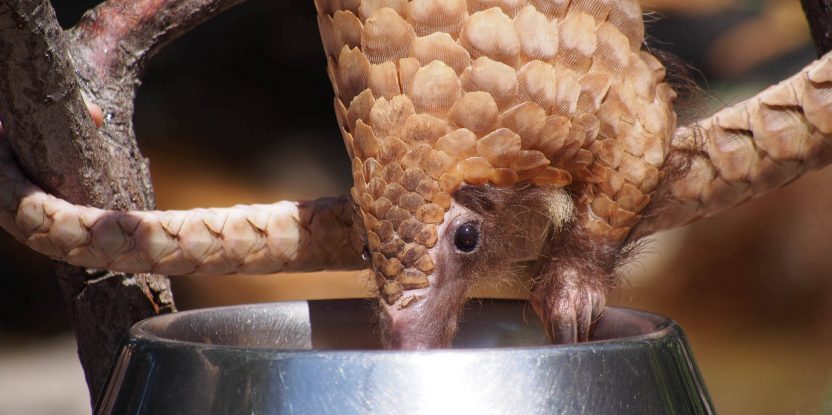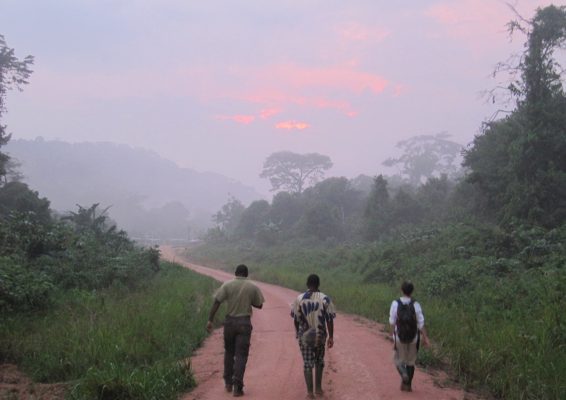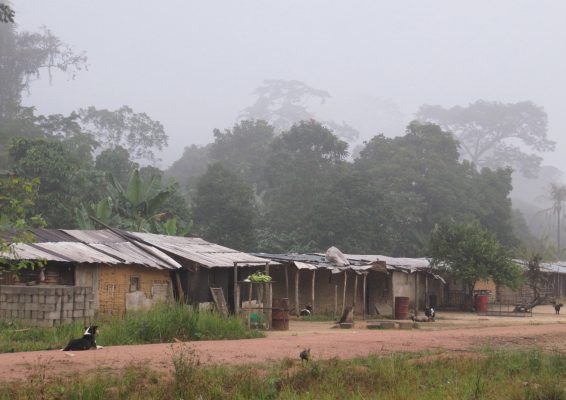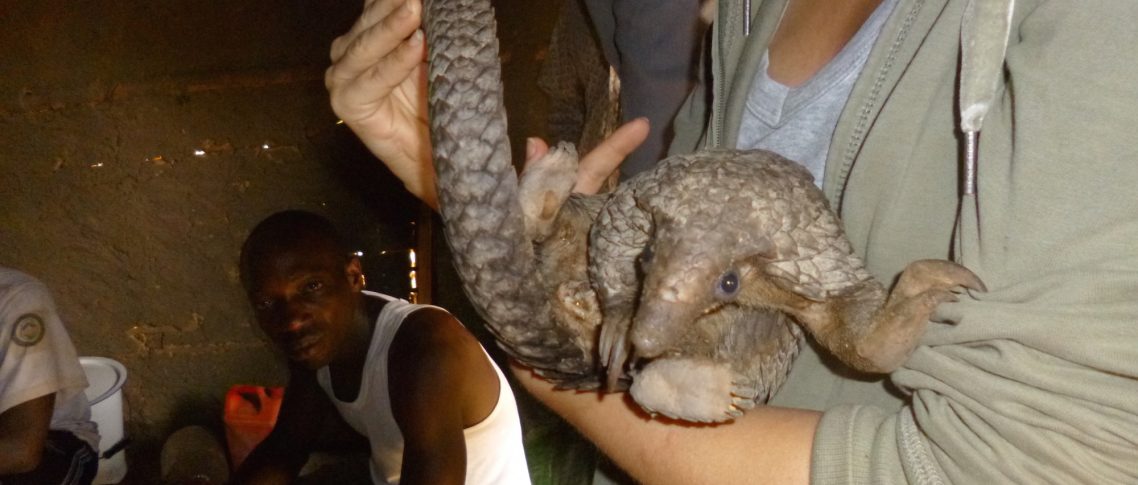Hunting is still crucial for people’s livelihoods, but other aspects of life have changed dramatically, she says. Now, the village has solar-powered lights, “and I’m Facebook friends with some of the hunters’ sons.”
Pangolins still frequently turn up in the hunters’ catch.
“Where I was living, pangolin stew was a normal food.”
While local communities are reliant on wild meat for their basic livelihood needs – such as food and income – pressure on Central Africa’s pangolins has increased over the past decades, due to the international trade in pangolin scales as a traditional medicine, mainly for consumption in China.
“Consumption of small animals by local communities can be sustainable,” says Coad, “but the increased pressure from this international trade is a big threat to pangolins, and we have already seen big declines in Asian pangolins as a result.”
The data Coad collected in Gabon is just one component of 161 sites in Central Africa she and colleagues from the Center for International Forestry Research and the University of Sussex collated to try to understand hunting pressure on pangolins across the continent. They found millions are being taken every year, hunting is increasing, and the price in urban markets is increasing.
Hunters in Gabon, Central Africa. CIFOR Photo/Lauren Coad
The local village. CIFOR Photo/Lauren Coad
Until recently, few people had heard of the pangolin outside of its homelands in Africa and Asia – but their plight is starting to attract global attention. The scaly creature is a favourite of David Attenborough and Prince William, it was highlighted in a New York Times editorial, and this year Google even made a game about pangolins for Valentines Day.
The pangolin’s newfound fame is well deserved, says Coad.
“It’s this awesome mixture of animals, you look at it and think it’s like part anteater, part fish, part armadillo. It’s this little scaly dude that looks like a dinosaur with a really long tongue. I think they just sort of capture people’s imagination.”
This research was supported by USAID, UKAID and the European Union under the Bushmeat Research Initiative
Copyright policy:We want you to share Forests News content, which is licensed under Creative Commons
Attribution-NonCommercial-ShareAlike 4.0 International (CC BY-NC-SA 4.0). This means you are free to redistribute our material for non-commercial purposes. All we ask is that you give Forests News appropriate credit and link to the original Forests News content, indicate if changes were made, and distribute your contributions under the same Creative Commons license. You must notify Forests News if you repost, reprint or reuse our materials by contacting
forestsnews@cifor-icraf.org.



